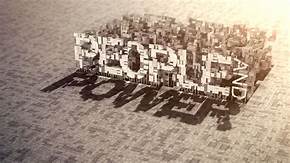WE HAVE THE POWER - NOW IS THE TIME TO USE IT
ANYONE still holding onto the hope that we can achieve anything through our current voting system really needs to take more notice of what is happening in the world. And calling out for PR in the hope that that will fix it is just as much pie in the sky. Dave Middleton wrote an excellent article on PR for Critical Mass magazine on Friday and another today after the Japanese GE.
So I’m not going to talk about PR or what voting system we could possibly have to bring about real change in society, but instead about the only thing that will – other than full-on revolution of course, which I’ve been calling for since the eighties but which too many people have been too apathetic to answer a ‘call to arms’. I’m not advocating we put the ruling classes up against a wall but we can take massive action.
Too many are afraid they may lose some part of their cosy lives if they go out on a general strike which will almost undoubtedly help those less fortunate yet we are the people with all the power. It’s us who keep society running, not the wealthy top percent who benefit from our work. If we withdrew our labour right this minute, if we stopped paying our bills, and got out on the streets en masse, what do you think would happen? Whole companies would be brought to their knees, the government would be brought to its knees.
We all stop paying rent to landlords, we stop paying for the most basic things such as water and electricity, we do not use public transport (most of which is privatised so will hurt the shareholders) and those who work in public transport would be out on strike also. We have such power in collective action and we are not using it. I understand people might be afraid of losing their jobs, but a general strike is just that – millions of us refusing to work, refusing to be consumers. If the majority of us took this action, it would work.
The government would of course bring in the armed forces to cope with some of these problems such as delivering food to supermarkets, where there should be no customers because we would have stocked up in preparation, and probably taking over driving some buses etc. And of course the police would be on the streets using their usual tactics to intimidate strikers.
We all saw what happened in the miner’s strike of 1984 when they were protesting the closure of so many collieries. These miner’s suffered incredible deprivation and hardship, not to mention police brutality, and were ultimately defeated, though they stayed out for almost a year. It was Thatcher’s government they were up against this time (see below for the strike a decade earlier), and anticipating their move she had prepared by stockpiling coal.
The Battle of Orgreave is now famous for the violent confrontation between about five thousand pickets and police, many of the latter brought in from all over the country including from the Met. Shamefully, and a prediction of what was to come from the BBC, what we see (or don’t) today, they showed distorted footage on television of pickets throwing stones at police and police responding with force, when those who witnessed it stated it was quite clearly the other way around.
Thatcher, on the day after the Orgreave picket of 18 June, remarked: “I must tell you... that what we have got is an attempt to substitute the rule of the mob for the rule of law, and it must not succeed. It must not succeed. There are those who are using violence and intimidation to impose their will on others who do not want it.... The rule of law must prevail over the rule of the mob.”
We keep hearing about the ‘rule of law’ but just because something is legal does not make it right. We must never forget this.
Scargill’s (NUM president) response was more accurate: “We've had riot shields, we've had riot gear, we've had police on horseback charging into our people, we've had people hit with truncheons and people kicked to the ground.... The intimidation and the brutality that has been displayed are something reminiscent of a Latin American state.”
But this wasn’t the first miner’s strike. The miner’s strike of 1974 was a different story. The National Union of Mineworkers (NUM) had seen their members wages fall and by the end of 1973 had had enough and voted through an overtime ban which led to the government bringing in the three day working week in an effort to conserve coal stocks as most of the UK's electricity was produced by coal-burning power stations, and then in January of 1974 81% of NUM members voted to strike which eventually resulted in the miners' getting their pay rise and led to the fall of Heath’s government.
So strikes can achieve the desired result despite what governments throughout the world would have you believe. They want to make it sound impossible because it is in their interests to do so. It is not impossible. Difficult, yes, but not impossible.
But firstly we must first organise within our communities. And nowadays we are also able to network and organise online. We all need to be out and working within our communities more, having our say, taking part in decisions at a local level. Volunteer, meet people, talk to them, for it is only by educating the masses as to what is happening around us that we can possibly see change. More and more people are now awake as to what is happening in the UK – these people now must be convinced that action needs to be taken.
The only effective action is general strike. Will there be hardship to many? Yes. But there are millions living in hardship right this second. Millions. If you're not one of them you're fortunate, but you easily could be. Don't wait until it is you who needs help.
If you enjoy my writing and feel you could help me continue to do so any donation would be appreciated. Thank you. You can do so at https://www.paypal.me/susiejgranic





Comments
Post a Comment